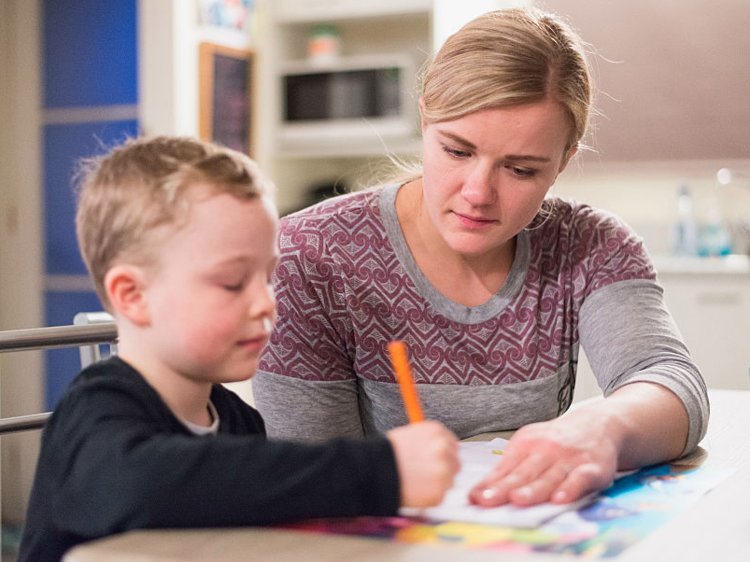Who doesn’t want their children to be the smartest cookies in the room, but clearly not everyone is blessed with a high IQ.
Although conventional thought suggests that IQ is something predetermined at birth and there isn’t much you can do about it, a new study is challenging that perception stating that while the mental capacity your child is born with does play a major role, there is something you can do to improve their intelligence especially as they grow older.

The study included toddlers between 18-24 months of age and was published in a journal called Pediatrics quite recently. According to its research, those children who had had conversations with their parents when they were as little as 8 months of age developed conversational skills much faster compared to their peers in the control group, and this difference continued well into their pre-teens.
The study also found that these toddlers did not only develop faster learning, but also showed a slight increase in IQ when they reached their pre-teen years, a positive variation in IQs of around 27%.
A Remarkable Study
The author of the study, Jill Gilkerson, called the study remarkable, for it revealed something much more than the researchers had set out to find. According to her, the purpose of the study was to identify the correlation in learning behaviour between children based on primary research, and although they achieved the results they were looking for, they also stumbled upon this estimate of the positive variation in the IQs of the children included in the study sample, 10 years after the original data was collected.

The study was extensive both in terms of its methodology as well as its impact. Recordings in audio of around 329 babies and toddlers, who resided in the Denver region, were collected, each with a duration of an entire day.
To analyse the extensive data, researchers took the help of a smart algorithm called Language Environment Analysis, which was basically able to differentiate between adult and baby voices and quantify the amount of time the babies were exposed to a proper conversation by an adult during the day.
Second Phase
After years of waiting, researchers took the study forward and conducted its second phase. This time, the ages in the children’s sample size had changed, going up and ranging between 9 years of age to 13 years old.
In this second phase, researchers were able to regather 146 of their original respondents, all of whom then participated and gave the tests of verbal comprehension, although this time they also attempted the Wechsler Intelligence Scale for Children.
When data from both the phases of the study was analysed, the researchers reached the conclusion that those children who, when they were little toddlers, were exposed to a lot of communication by their parents, they tended to have better verbal skills as well as intelligence scores compared to those of their peers who were not.
And if you are thinking that socioeconomic class or other such factors must have played a role in these results, then you’d be glad to know that the study did take this into consideration and concluded that its data remained consistent regardless which socioeconomic classification the babies belonged to, highlighting that socioeconomic status does not play a role in this.

What You Should Do?
Communicating with a toddler is obviously no easy task, however there are ways you can incorporate this practice into your daily life without having to invest a lot of specialized time and energy.
First, make a habit of narrating all that you observe, do, and don’t do. Since babies have specialized hearing that allows them to recognize the voice of their parents, there brains are highly receptive to receiving new ideas and conversations.
For those who want to take a more systematic approach to things, Ashley Thurn, a therapist, has the most perfect solution: talk to your toddlers like they want to be talked to. Remember, you’re trying to open doors here, trying to get your toddler to speak, hence its imperative that you make the effort.
Persistence is key: you may have to repeat saying words thousands of times before it is retained by a toddler. But, in the long term, it’s definitely worth it.




